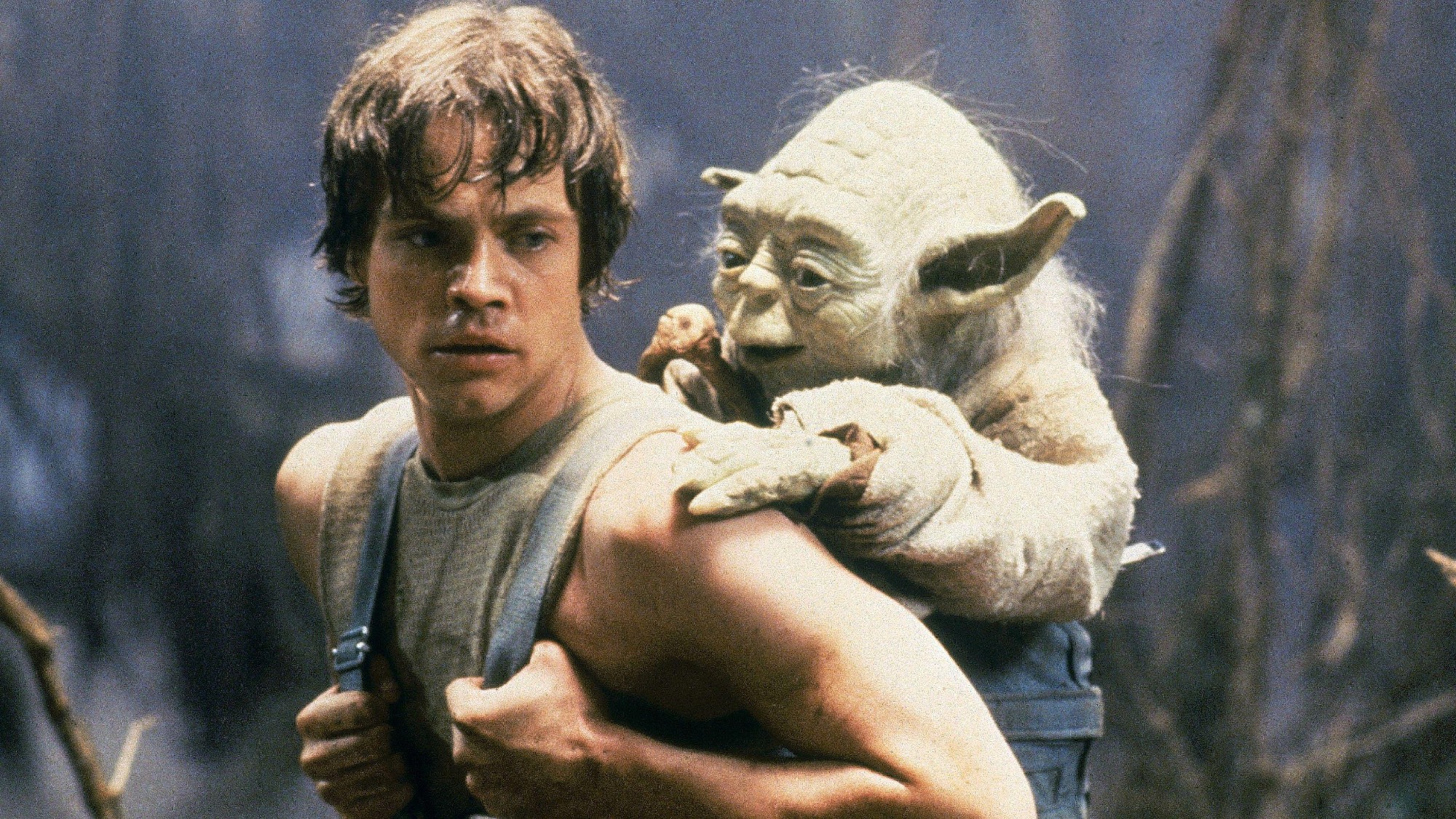5 best movie sequels of all time
The second time is only sometimes as good as the first


A free daily email with the biggest news stories of the day – and the best features from TheWeek.com
You are now subscribed
Your newsletter sign-up was successful
Film sequels have to walk a delicate line between telling the same story twice and alienating fans by departing too far from the original's ethos and narrative. And because not all — or even many — stories need to be fleshed out further, history is littered with mediocre sequels, some, like "The Matrix Revolutions," so bad they make you wonder whether their predecessors were any good in the first place. But every now and again, a sequel comes along that is every bit as good as what it builds on.
'The Empire Strikes Back' (1980)

The sequel to "Star Wars," which was at the time the biggest box office smash in film history, was not met with universal hosannas. The film is a "big, expensive, time-consuming, essentially mechanical operation," said The New York Times when it was released. But the movie is now widely regarded as the best entry in the increasingly sprawling franchise. It traces the fallout after rebels destroyed the evil intergalactic empire's flagship Death Star at the end of the original, hunting the Rebel Alliance including Luke Skywalker (Mark Hamill) and Han Solo (Harrison Ford) to the icy planet Hoth. "The Empire Strikes Back" is a "visual extravaganza from beginning to end, one of the most visionary and inventive of all films," said Roger Ebert.
'Aliens' (1986)

Director Ridley Scott's 1979 space-horror classic "Alien" was a genre-defining hit that spawned a franchise now in its fifth decade, including a highly anticipated FX television series. James Cameron's 1986 sequel is considered by many to be the equal of, or even superior to, the original. "Aliens" picks up 57 years after the events of the first film, when a salvage ship finds a hibernating Ripley (Sigourney Weaver), the sole survivor of her vessel after it was slaughtered by the now-iconic extra-terrestrial xenomorphs. While it "filled me with feelings of unease and disquiet and anxiety," the sequel is an "intense and horrifying thriller" that is a "superb example of filmmaking craft," said Roger Ebert.
The Week
Escape your echo chamber. Get the facts behind the news, plus analysis from multiple perspectives.

Sign up for The Week's Free Newsletters
From our morning news briefing to a weekly Good News Newsletter, get the best of The Week delivered directly to your inbox.
From our morning news briefing to a weekly Good News Newsletter, get the best of The Week delivered directly to your inbox.
'Terminator 2: Judgment Day' (1991)

In James Cameron's "The Terminator," Arnold Schwarzenegger's cyborg killer was one of the most memorable — and chilling — villains of 1980s cinema. In the original, he gets sent back in time by humanity's post-apocalyptic AI overlords to eliminate the future human resistance leader, John Connor, before he's born by killing Connor's mother, Sarah (Linda Hamilton). That made the plot maneuver in the sequel especially clever. Instead of being sent back in time to kill Connor (Edward Furlong), Schwarzenegger instead plays a cyborg sent to protect him. The result was a "swift, exciting special-effects epic that thoroughly justifies its vast expense and greatly improves upon the first film's potent but rudimentary visual style," said The New York Times.
'The Dark Knight' (2008)

The second film in director Christopher Nolan's reboot of the Batman franchise featured Heath Ledger, who died of a drug overdose before the film was released, as the Joker, a "disturbed, articulate terrorist who's hell-bent on creating chaos," said Paste Magazine. The Joker promises to kill Batman (Christian Bale) to liberate Gotham City's underworld figures from Batman's omniscient crime fighting. He then engages in an escalating series of terrorist attacks to lure Batman out and reveal his true identity. Led by Ledger's "unnervingly thorough performance," the film succeeds by creating "operatic conflict between tortured good and contented chaos," said The AV Club.
'Borat Subsequent Moviefilm' (2020)

Comedy sequels, from "The Hangover Part II" to "Caddyshack II," have a pretty dim reputation, which makes the occasional exception all the more notable. Sacha Baron Cohen's early-aughts character Borat Sagdiyev is revived here in another mockumentary-style adventure in which Borat, fresh off serving 14 years in prison in his native Kazakhstan, is dispatched to the United States where, among many other adventures, he attempts to give his daughter (Maria Bakalova) away as a prize to then-Vice President Mike Pence. The film may always be remembered for ensnaring the hapless Rudy Giuliani, but by featuring "surprisingly satisfying, if simple, story and character arcs," it makes Cohen one of the few to "nail the Legacy Sequel format," said Den of Geek.
A free daily email with the biggest news stories of the day – and the best features from TheWeek.com
David Faris is a professor of political science at Roosevelt University and the author of "It's Time to Fight Dirty: How Democrats Can Build a Lasting Majority in American Politics." He's a frequent contributor to Newsweek and Slate, and his work has appeared in The Washington Post, The New Republic and The Nation, among others.
-
 Political cartoons for February 15
Political cartoons for February 15Cartoons Sunday's political cartoons include political ventriloquism, Europe in the middle, and more
-
 The broken water companies failing England and Wales
The broken water companies failing England and WalesExplainer With rising bills, deteriorating river health and a lack of investment, regulators face an uphill battle to stabilise the industry
-
 A thrilling foodie city in northern Japan
A thrilling foodie city in northern JapanThe Week Recommends The food scene here is ‘unspoilt’ and ‘fun’
-
 Mail incoming: 9 well-made products to jazz up your letters and cards
Mail incoming: 9 well-made products to jazz up your letters and cardsThe Week Recommends Get the write stuff
-
 The 8 best superhero movies of all time
The 8 best superhero movies of all timethe week recommends A genre that now dominates studio filmmaking once struggled to get anyone to take it seriously
-
 One great cookbook: Joshua McFadden’s ‘Six Seasons of Pasta’
One great cookbook: Joshua McFadden’s ‘Six Seasons of Pasta’the week recommends The pasta you know and love. But ever so much better.
-
 How to navigate dating apps to find ‘the one’
How to navigate dating apps to find ‘the one’The Week Recommends Put an end to endless swiping and make real romantic connections
-
 February TV brings the debut of an adult animated series, the latest batch of ‘Bridgerton’ and the return of an aughts sitcom
February TV brings the debut of an adult animated series, the latest batch of ‘Bridgerton’ and the return of an aughts sitcomthe week recommends An animated lawyers show, a post-apocalyptic family reunion and a revival of a hospital comedy classic
-
 Caribbean resorts that call for serious rest and relaxation
Caribbean resorts that call for serious rest and relaxationThe Week Recommends Serenity is a flight away
-
 Josh D’Amaro: the theme park guru taking over Disney
Josh D’Amaro: the theme park guru taking over DisneyIn the Spotlight D’Amaro has worked for the Mouse House for 27 years
-
 February’s books feature new Toni Morrison, a sapphic love tale and a criticism of Mexican history
February’s books feature new Toni Morrison, a sapphic love tale and a criticism of Mexican historyThe Week Recommends This month’s new releases include ‘Autobiography of Cotton’ by Cristina Rivera Garza, ‘Language as Liberation’ by Toni Morrison and ‘Heap Earth Upon It’ by Chloe Michelle Howarth
